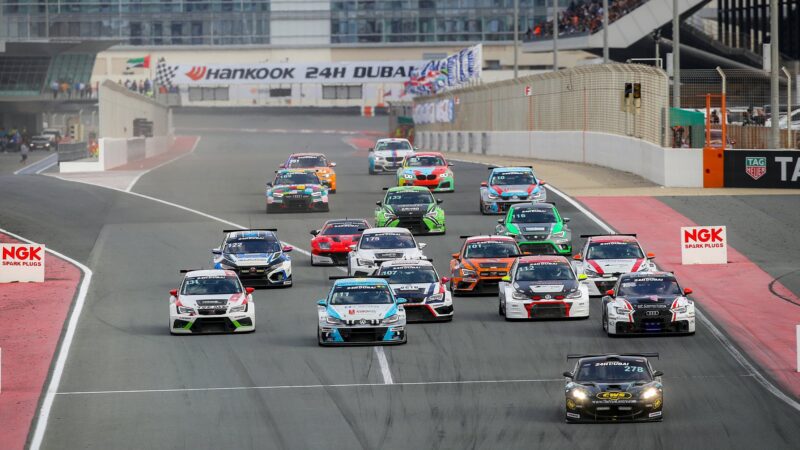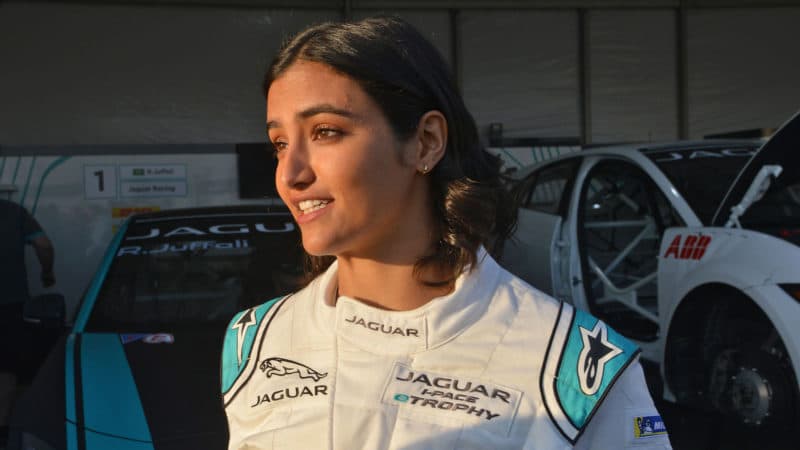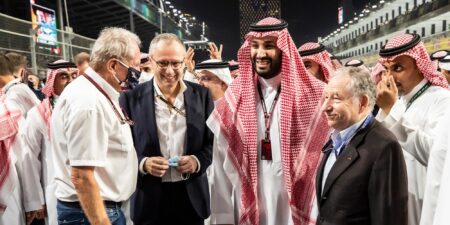She openly admits “results-wise, I was not where I want to be,” but adds: “I definitely think it was the right thing to do. In the beginning I was around a second off the pace and half-way through the season I was within a second when the others had also made their own gains. Just being in the car, understanding it and drive it the way I wanted to from a physical point of view, I didn’t feel I wasn’t prepared or ready. Part of it is about learning as I go, but I wanted to experience the aero and technicality within these F3 cars. I wouldn’t feel as comfortable in a GT3 car now if I hadn’t done it.”
Single-seaters were always a means to an end for Reema, who says the Le Mans 24 Hours and endurance racing have always been her primary target. This weekend she takes her first step towards that goal by competing in her maiden GT race, the Dubai 24 Hours, driving an SPS Automotive Performance-run Mercedes-AMG GT3 she’ll share with German Valentin Pierburg, American George Kurtz and Briton John Loggie. The entry is packed full of experienced racers, modern GT3 cars cannot be underestimated and once again she’s asking a lot of herself. “As always I’ve thrown myself into it,” she says, on the back of a handful of test days and a winter of intense endurance fitness training. Just getting through her stints unscathed and helping steer the car to the finish will be an achievement.
“In the next couple of years you’ll see some names coming out of Saudi in this sport.”
Reema is lining up a full racing programme for 2022 – “it’ll definitely have a roof and won’t be a single-seater” is all she can say for now – and after spending large chunks of time in the UK is now basing herself back in Jeddah. It’s given her a great perspective on what she says is genuine change for women in her home country. “When I’ve come back every three or six months I’ve seen the change and it’s incredible how fast people are taking things on and empowering themselves to make changes. And it’s our generation that is doing it.”
She was proud to be named an ambassador for the first Saudi Formula 1 grand prix last month and is likely to have a similar role for the next one at the end of March. Beyond her own ambitions, she has high and genuine hopes that a new generation of Saudi racing drivers will break through in the years to come, influenced by the raft of major motor sport events the Kingdom now welcomes: F1, the Dakar Rally, Formula E at the end of this month and Extreme E in the spring. “Our neighbours in Bahrain and the UAE have more experience by 15 or 20 years,” she says. “Now we are creating both the infrastructure and racing knowledge, and it’s an exciting time. In the next couple of years you’ll see some names coming out of Saudi in this sport.”

This weekend’s Dubai 24 Hours will be Juffali’s first GT race
24H Series
They should have an easier and clearer route to chase their ambitions than Reema faced. Motor racing’s increasing infatuation with Saudi Arabia is uncomfortable and troubling, from a western perspective of ‘sports-washing’ and ‘green-washing’. But inside the Kingdom the citizens who live with the reality of existence in such a confined society are curious about the new worlds opening up to them. For motor sport, there is no reason why the people should not be embraced and welcomed into the global community.
“I can see how the presence of F1 completely changes people’s impressions and expectations, and opens doors,” says Reema. “People are able to dream of new things and it’s so much more than just racing. But from that perspective, the amount of questions I’m getting now… how can I become a racing driver? What’s the best way to go about it? To be an F1 driver, is it impossible? It wasn’t even on people’s radar before, but even parents are asking me, how can we get our kids into go-karts? It’s creating new opportunities. To have such events at home, there is definitely a sense of pride.”


